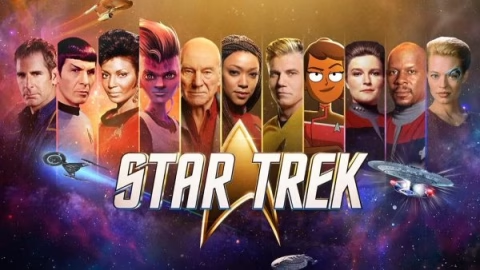Paramount Global, the parent company of the iconic Paramount Television Studios, is getting ready to shut them down completely as part of a broader restructuring effort aimed at cutting costs and streamlining the company, against a backdrop of tumultous change within the entertainment industry. They’ll save about $500M a year by closing the studio.
The closure of Paramount Television Studios is the latest in a series of cost-cutting measures by Paramount Global, which has already laid off approximately 800 employees in recent months. The company is expected to carry out further layoffs in three phases over the remainder of the year.
This is big news. The closure marks the end of an important chapter in Hollywood history for a studio that played a pivotal role in shaping television content over the past eleven years. The shutdown was announced in a staff memo Paramount Global co-CEO George Cheeks and Paramount Television Studios President Nicole Clemens, and will take effect at the end of the week.
Paramount Television Studios was initially created to reestablish Paramount Pictures’ presence in television production. The idea was to leverage the company’s extensive film library. Any and all projects in either current or future development or production will go to CBS Studios, ahead of Paramount Global’s planned merger with Skydance.
Cheeks emphasized that the decision to close Paramount Television Studios wasn’t a reflection of its performance or the quality of the work they were doing, but rather a response to significant changes in the TV and streaming marketplace. “This move is the result of significant changes in the TV and streaming marketplace and the need to streamline our company,” Cheeks explained in his memo. He praised Clemens and her team for their work, stating, “Under Nicole’s leadership, this studio consistently punched above its weight in attracting top storytellers and stars to create best-in-class series.”
Over the past year, as the company’s value continued to drift downward, controlling shareholder Shari Redstone made the decision to part with the firm her family has overseen for nearly 35 years. Last month, a group led by tech scion David Ellison finalized an $8-billion deal with Redstone and other board members to acquire the struggling company.
Ellison’s Skydance Media, along with RedBird Capital Partners and his father, Larry Ellison, co-founder of Oracle Corp., are set to take control in the first half of next year, pending regulatory approval. The Skydance deal allocates $2.4 billion to buy National Amusements, with the Redstone family expected to collect around $1.75 billion after settling debts, according to informed sources.
RedBird and Skydance have also committed to a $1.5-billion cash infusion to help Paramount reduce its debt. Additionally, the deal is expected to reserve over $4 billion for buying out shares from Paramount investors seeking an exit.

The Star Trek Connection
Paramount Television has a significant place in the history of Star Trek, being the studio behind the franchise for many decades. Here’s a brief overview:
Historical Role of Paramount Television in Star Trek:
- Original Series and Early Years: The Star Trek franchise began with Star Trek: The Original Series (TOS), which was produced by Desilu Productions. When Desilu was acquired by Gulf + Western, the company became part of Paramount Television, which then took over the production of Star Trek.
- Expansion of the Franchise: Paramount Television played a crucial role in expanding the Star Trek universe. This included producing Star Trek: The Next Generation (1987–1994), Star Trek: Deep Space Nine (1993–1999), Star Trek: Voyager (1995–2001), and Star Trek: Enterprise (2001–2005). These series were all developed and produced under the Paramount Television banner, solidifying the studio’s role as the custodian of the Star Trek franchise.
- Transition to Streaming: In more recent years, Star Trek found new life through streaming platforms, with series like Star Trek: Discovery, Star Trek: Picard, and Star Trek: Strange New Worlds being produced under CBS Studios, following the separation of CBS and Viacom. Paramount Television was still indirectly involved through its association with CBS, which held the rights to the television side of the franchise.
While Paramount Television played an important role in the history of Star Trek, its closure will not affect the ongoing production of Star Trek content. The franchise remains in the hands of CBS Studios, (right back where it started from) so fans can expect a great many more new adventures in the Star Trek universe.
The Future for Paramount
As the industry continues to evolve, the impact of Paramount Television Studios’ closure will be felt across the entertainment landscape. However, the legacy of the studio stands strong, and they’re far from cooked yet.
As a lifelong professional in the entertainment industry, I can assure you of at least this much: changes like this are just going to happen over the decades. They always have, and they always will. The various studios have been engaged in an overreach trying to jump into the streaming marketplace where they had no particular expertise to start with, each thinking they were going to be the ones, in their corporate hubris, to survive the streaming wars when their rivals would not. At the same time, most studios have been trying to squeeze as much profit as they can out of not only their box office but everyone who works for them without care for the future of the industry over the long term, as we saw from all the actors, writers, directors and producers strikes going on over the past year or so. We can all see by the evidence how all that is working out for them.
As much as they might like to think so, nobody has a lock on the future, and every decision they and every other studio makes is really just an educated guess. Things are bad in Hollywood right now, but Paramount, like the other studios and the industry as a whole, will likely muddle through as they always have.
![]()













As someone who worked for CBS, and then Paramount Global, for 12 years I have to say that this is all more than just a case of losing the battle for streaming. Merging Viacom with CBS was such a bad idea that it took Les Moonves’ fall from Grace and Redstone replacing members of the CBS Board to make it happen. The CBS Board, after due diligence, made it clear they saw no advantage to CBS from such a merger. Being there was like watching a slow motion train wreck. The delays and mishandling of the sale this past year were not a result of disarray. They were an example of the disarray over the last few years that got Paramount to this point.